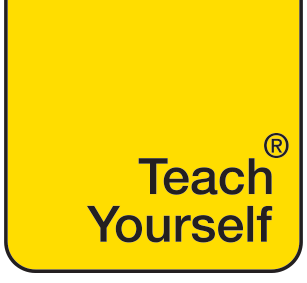Benny Lewis shares his top 10 key language hacks from his bestselling title, Language Hacking: French. If you've ever felt a little bit overwhelmed with learning French or any new language, Language Hacking might be the answer. It's a completely different approach to language learning and gives you the most versatile phrases and most effective shortcuts to help you get fluent faster.
Language hacking is all about looking for the faster, smarter ways to learn languages. I’ve been sharing and developing my ideas on language hacking ever since I launched Fluent in 3 Months in 2009.
Rather than go in-depth on how language hacking works (you can read more about that here), I thought I’d give you a sneak peek inside my Language Hacking French course, so you can try out some French hacks for yourself.
Read on for a part 1 of the my top 10 tips!
- Get a Head-start With Words You Already
French and English share thousands of words in common. In fact, linguists estimate that up to one third of the English language is directly influenced by French. Thanks, Norman Conquest!
Words that have identical or near-identical spelling, and the same meaning in two languages are called cognates. There’s not enough room here to list all the words that English and French have in common. But here are a few simple rules to help you figure out how to determine which English words are likely to have a cognate in French:
- Most English -tion words have the same spelling and meaning in French. For example: admiration, association, instruction, option, etc.
- English words ending in -tude, -or, -ist, -nce and -ty: These words usually have the same meaning in French, and nearly the same spelling. Examples: altitude, acteur, optimiste, arrogance, université.
- Learn French Vocab Faster with Memory Hooks
Memory hooks are all about linking new vocabulary to powerful images, ideas or even sounds. That way you can memorize a lot of new words in a very short time.
You can use mnemonic techniques to memorize French vocab.
An easy way of doing this is to look for an English word that sounds like the French word you’re trying to learn. For example, suppose you want to learn that sur means “on” in French. Are there any English words that sound like “sur”. What about “syrup”? And where do you usually put your syrup bottle when you’re having pancakes? On the table. So to remember that “sur” means “on”, picture a bottle of syrup on the table.
Memory hooks work best when you create them yourself. Try to come up with a funny, shocking, or dramatic sound or image to connect a new French word to its meaning. It might sound like hard work at first, but it’s really not. Soon it will become second nature. Then you won’t have to worry anymore about hearing a French word that you know you’ve heard before, but can’t quite remember.
3, Learn French Word Genders with this Simple Trick
Learn just two rules about word endings in French, and you can guess the gender of new words and have a pretty good chance of being right.
- Words ending in a consonant (except -ion) are probably masculine. E.g. “le poulet”, “le mur”, etc.
- Words ending in -e and -ion are probably feminine. E.g. “la rue”, “la différence”, “une université”, etc.
Of course, there are exceptions, but don’t worry about those for now. You can learn them as you go. The more you speak, the more you’ll hear the exceptions, and eventually, you’ll just get a “feel” for the gender. This is how native French speakers figure out the gender of less-common words that they’re not sure of.
Don’t fall into the trap of trying to figure out whether the noun the word refers to is inherently masculine or feminine. This doesn’t work. There is no relationship between the gender of the noun and the gender of the object it refers to. The gender of words can even change from country to country. For example, in France, the word “job” is “le job”, but in Quebec, it’s “la job”!
- Five Booster Verbs so You Can Say Almost Anything
When you’re talking in French, the last thing you want to do is pause every few words to remember how to conjugate your verbs.
You can use verbs even before you learn to conjugate them by rephrasing your sentence using one of the following five “booster” verbs. You can use all of these verbs with another verb in its dictionary form - no conjugation required.
Aimer (for interests)
Instead of trying to remember the “je” form of every verb for every activity you’re interested in, just use aimer (“to like”) plus the verb in its dictionary form.
For example: “I play baseball” can become “J’aime jouer au baseball” (I like to play baseball). “I go out every weekend” can become “J’aime sortir chaque weekend” (I like to go out every weekend).
Aller (for future plans)
Use aller (“to go”) to talk about what you’re doing in the near future. For example:
- “Je vais manger” (“”I’m going to eat”)
- “On va travailler” (”We’re going to work”)
Vouloir (for intentions)
Vouloir (to want) is a great verb to use when you intend to do something but can’t remember the “je” form of the activity you want to do. For example: “I’m seeing the movie tomorrow” can become “Je veux voir le film demain” (“I want to see the film tomorrow”).
Devoir (for obligations)
If the activity you want to talk about is an obligation, you can rephrase your sentence using devoir (to have to). For example:
“I’m working tomorrow” can become “Je dois travailler demain” (“I have to work tomorrow”).
“I’m writing this article for Friday” can become “Je dois écrire cet article pour vendredi” (“I have to write this article for Friday”).
Pouvoir (for possibilities)
Use pouvoir (to be able to) for clarifying that you ‘can’ or ‘are able to’ do something. For instance, the verb recevoir (to receive) can be quite tricky to get right, so you could say:
“Je peux recevoir la lettre ici” (“I can receive the letter here”)
- Pronounce Words You Haven’t Even Learned Yet
All those silent letters in French that make it difficult to spell words correctly are actually good news for your pronunciation.
For all regular -er verbs, the je, tu, il/elle, and ils/elles forms are pronounced exactly the same way. For example, the verb visiter in je visite, tu visites, il/elle visite, and ils/elles visitent sounds the same each time.
For -ir and -re verbs, they’re pronounced the same in the je, tu and il/elle forms.
Any time you hear a new regular verb in French, even if you’ve never seen it written down, you’ll already be able to pronounce at least three forms: je, tu, il/elle, and (for -er verbs) ils/elles. So when it comes to speaking French, most of the heavy lifting will already be done for you!


